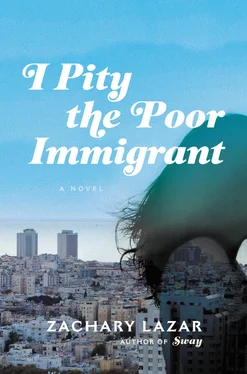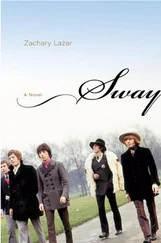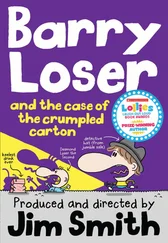“It must be worth something,” she said.
“Not really,” he answered. “Not much. These things just accumulate. Don’t take it if you don’t like it.”
He was still holding it against his hip.
“I used to make drawings,” she said. “Schiaparelli. Chanel. I used to dream about those things, even when I was a little girl. Even when I was younger than Hannah.”
He put the poster down on the counter and looked at her. He seemed on the verge of probing for more, then she could see him decide not to.
“Fine, good,” he said. “Then it’s yours.”

He came back a little after ten, moving in the lamplight with a tight chest, not looking too much at anything. Mona’s things, his things — the Turkish rug, rose colored, the worn sofas, the end tables with their stacks of magazines. The sunroom lay beyond it, its windows on the pond a lustrous black. In the kitchen, he found an old bottle of rum and poured some into a glass with some ice, the Haitian kind he liked, Barbancourt. He wished he could have stayed at the Kleins’, the candles burning over the two different hearths, the women in their sweaters and jeans and high boots, food all around, the different wines. Harry Klein sold commercial real estate. He did impressions and told obscene jokes, even racist jokes, and he read Anna Karenina every year. Mona had liked to help him prune the fruit trees on the side of his property each March, standing on the ladder with her long streaked hair blowing in her eyes, her rag wool gloves.
She’d been a photographer, known in a modest way for portraits of criminals in the documentary style of Robert Frank. In the city’s interrogation rooms, the police would set up a clock beside their suspects to serve as a time marker during their videotaped statements. Mona’s photographs showed these suspects, black or Hispanic usually, listless or defiant or in tears, always with that clock in the frame, its pointing hands.
Metastasis — the liver, the lungs, even the brain. There was the wait while they hydrated her, the wait while they ran the bloodwork, the wait while they brought her to the chair and ran the chemo, the wait in the office. People magazine, Car and Driver, Highlights . The wait in the bedroom while she prepared herself to come back out after a bath, her hair gone, even her eyebrows, her face somehow naked, scalded. One time he’d asked her how she felt and she’d said, “I’m scared,” and it was like the only honest thing he’d ever heard. There was nothing that could prepare you for how it felt, the tubes in her bruised arm, the EKG, the paper gown, Mona so emaciated she seemed half her size, as if she wasn’t anyone in particular anymore, or as if the machines were there for the simple purpose of stealing her identity.
He switched off the lamp and stood for a while in the living room. Hours would pass, he wouldn’t sleep, he knew it already. The furnace ticked erratically in the walls, then came on with a low muffled whoosh. The loss felt more like fear now. It came at him backwards. What he feared had already happened. When he turned off the light in the hallway, the darkness was a thickness, a presence in the air. He opened his eyes and it was no different from having them closed. The city was never dark in that way. It was a darkness you breathed.
He switched the light back on and saw the bedroom down the hall where Gila was. His resolve rose and then waned in a way that was dizzying — he imagined it happening and then it happened. It had happened before. He went ahead and approached her door absently, his fingers resting for a moment on the glass knob. He paused as if about to knock, then thought about the noise and instead he slowly opened it, stepping forward like a wary child. She turned in bed with an intake of breath. She had fallen asleep with a magazine on the blanket beside her. The smell of her sleep filled the room. It was impossible to do this with any grace.
“I still have a few things to learn,” he said.
She rubbed her eyes, then switched on the bedside lamp. “Like what?” she said.
“Lots of things. How to live without scruples.”
She turned away and he moved farther into the room, sitting in a little chair by the door in his overcoat.
“I quit my job,” she said.
“When?”
“This afternoon. I can’t do it anymore. It was time.”
She wanted to open a store — women’s clothes, evening wear. He had promised once he would help her. This was what she was really saying.
“I was hoping Hannah would learn Hebrew,” he said, his eyes closed. “They teach her French in school — nice, fine — but what does it really have to do with anything, French?”
“It’s a nice house you have. A nice life.”
“This was the room she fussed over. The guest room. I never understood why. People coming to visit. Endless.”
He brought his hand back to his shoulder and massaged it. She was looking at the magazine now, one of Mona’s, Aperture. The lamp, the window valances, the sleigh bed from the shop in East Hampton.
“I thought we’d go on the boat tomorrow with the Kleins,” he said.
“You go.”
“You’ll stay here and read my wife’s magazines.”
“I don’t like boats. I also don’t like playing games.”
“Of course you do.”
He stood up and finished the drink, the warmth filling his chest.
“Just stay,” she said. “I’m sorry. I’m being crazy.”
“Not crazy.”
“Crazy. I can see that.”
The lamp threw its garish cone of light on her side of the room, exposing the tangled pattern of the Victorian wallpaper. Mona’s Aperture. That world she’d wanted to enter, its soundless black-and-white stillness. He watched his hand to steady it as he bent down to put his glass on the floor beside the chair. He tried to move more slowly. She reached her hand out toward him and let it rest on the blanket. He lay on the bed beside her with his coat still on, his shoes. A lot like Mona and nothing at all like Mona. He kissed her neck just below the ear and she rolled toward him and he felt her bare waist beneath the T-shirt, the warmth of her skin, the curve of her breasts.

In the temple, on the walls of the hallway leading back to the classrooms, Mr. Stone had erected a kind of shrine: black-and-white photographs of decimated men in rags, shaven-headed men naked in piles, dead bodies in the open pit — Auschwitz, Treblinka, Bergen-Belsen — he would intone the names in the mournful lilt of prayer. The ones who weren’t naked wore clownish striped suits and caps, the teeth falling out of their skulls. Mr. Stone wanted you not to understand but to feel complicit. He wanted you to be answerable for a catastrophe so distant you could only resent him for presenting it to you, those withered people behind the barbed-wire fence.
That first night Gila had come to the apartment, she’d hardly spoken to Hannah, even though they’d seen each other all those days at Hebrew school. Gila had had her hair not tied back but down, and she wore a black T-shirt and jeans — it occurred to Hannah for the first time that Gila had a private life she knew nothing about. Her clothes, her loose hair cut straight just above her shoulders, not tied back or pinned, faint lines at the edges of her green eyes, but her clothes the clothes of a young person — the shock of the way she looked, that and her coldness, her silence. She read a fashion magazine while Hannah watched TV. Maybe Hannah had fallen a little in love with her over the course of those nights. Maybe that was why she’d told Mr. Stone her story of the camps.
Читать дальше













